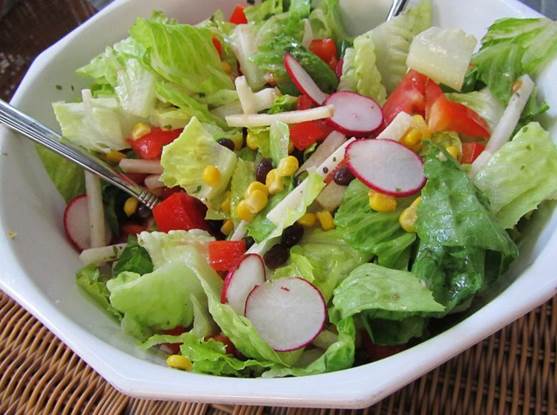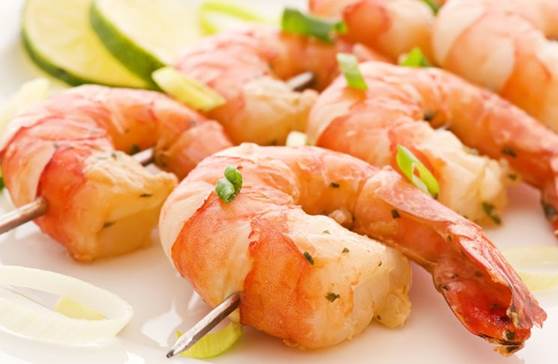What makes a salad more healthy?
Fat-free or regular salad dressing?
Regular dressing.
Last year US researchers discovered that without a splash of
fat, the body doesn’t absorb some key salad nutrients like lycopene, lutein and
beta-carotene, which lower the risk of numerous diseases, including cancer.

Fat-free or
regular salad dressing?
Why?
The nutrients are carotenoids, fat-soluble pigments the body
can’t use without a little fat, something salad vegies don’t usually contain so
the dressing needs to provide it. “If you have a salad with a fat-free
dressing, there are fewer kilojoules, but you lose some of the benefits of the
vegetables,” says study author Associate Professor Mario Ferruzzi.
Work with it
‘Fat’ doesn’t mean ‘creamy’. The scientists found thatwhile
a variety of fats, including saturated, facilitated the absorption of salad
nutrients, the best performers were dressings made with monounsaturated fats
like olive oil. They required the least amount of fat to do the same job.
What is worse for your cholesterol levels?
Eggs, prawns or cheese?
Cheese, even though eggs and prawns contain cholesterol and
cheese is typically cholesterol-free.
Why?
The cholesterol in food doesn’t have much impact on your
body’s cholesterol levels. It’s the saturated fat in food that causes your
cholesterol levels to rise. Do the maths: an egg yolk contains 250mg of
cholesterol, just 50mg less than the highest recommended daily intake, but the
Heart Foundation says we can still eat six a week. Whereas, to keep cholesterol
levels low, saturated fat shouldn’t contribute more than seven per cent of a
day’s kilojoules. For most women, a 50g serve of cheddar cheese wipes out two
thirds of that in one hit.

Eggs, prawns or
cheese?
Work with it
Choose low-fat dairy products. A 50g serve of low-fat
cheddar contains less than half of the saturated fat of the full-fat version.